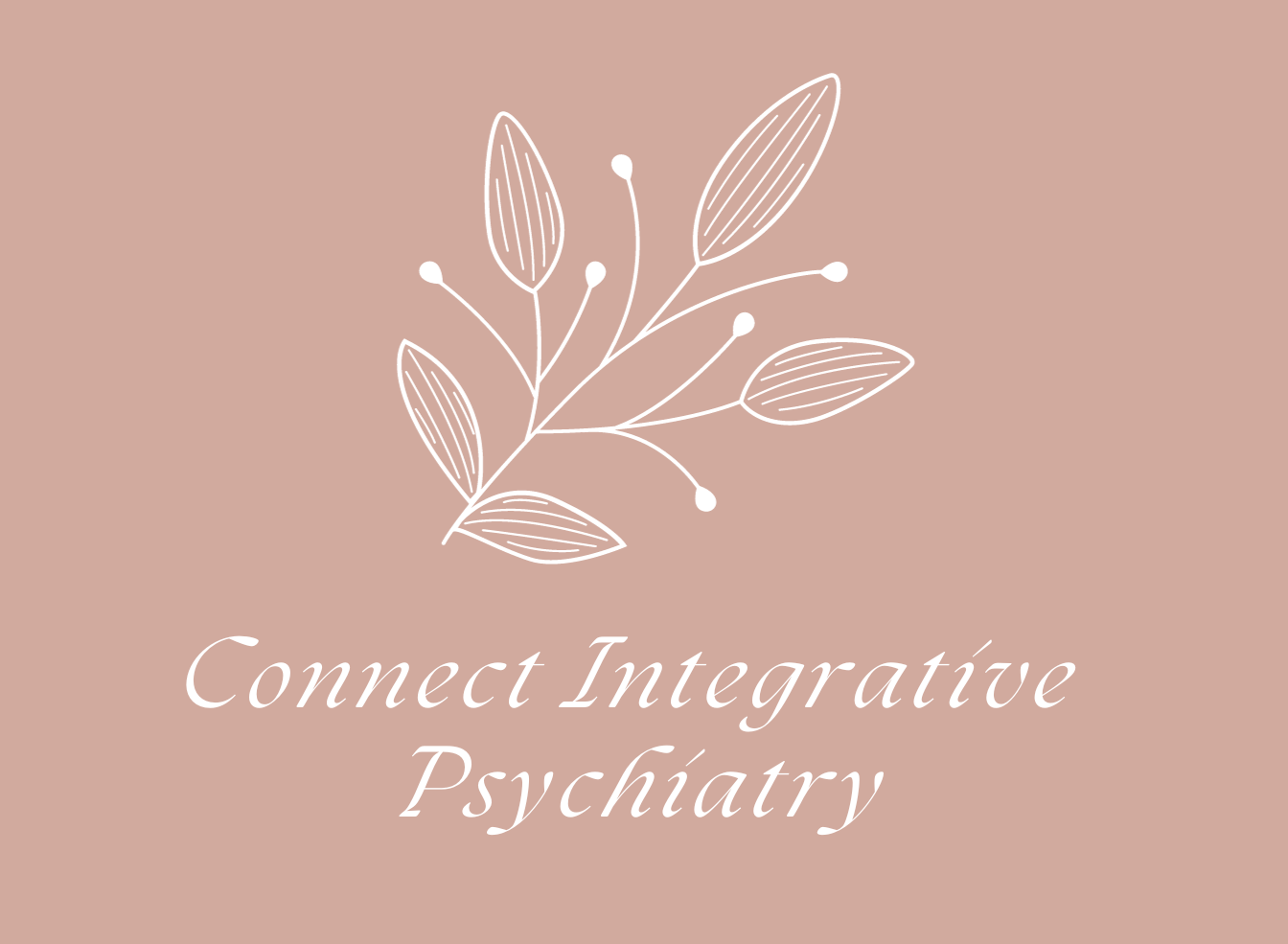
Psychiatry for Moms
Supporting Mental Health Beyond the Perinatal Period
Motherhood is often portrayed as a season of love, joy, and personal growth. While these moments are real and powerful, they exist alongside a much more complex emotional reality. For many women, becoming and being a mother can stir a range of mental health challenges that extend far beyond the well-documented postpartum period. The truth is: maternal mental health is not confined to the first few months after birth, and support should never be limited to that window either.
Through compassionate, evidence-based care, we help mothers navigate the emotional, biological, and psychological changes that unfold across the many seasons of motherhood. Whether you're facing mood shifts during early parenting or burnout years later, support is not only available—it’s essential.
Motherhood Is Not One-Size-Fits-All
The myth of the "perfect mother" persists in our culture: endlessly patient, selfless, joyful, and in control. But real life rarely mirrors this ideal. Mothers today carry more responsibilities than ever, often with limited communal or systemic support. Many are expected to return to work weeks after childbirth, perform unpaid emotional labor at home, and maintain a cheerful social media presence—all while suppressing anxiety, exhaustion, or sadness.
Whether you’re a new mother navigating hormonal shifts and sleepless nights, a stay-at-home parent questioning your identity, or a working mom managing performance reviews and preschool drop-offs in the same breath—your emotional health matters deeply. And yet, it’s so often overlooked.
Maternal mental health care should be as nuanced and dynamic as motherhood itself.
Mothers may experience:
-
Anxiety
If you’re overwhelmed by persistent worries, racing thoughts, insomnia, or panic attacks, we’ll help you develop peace through a customized plan that may include lifestyle changes, therapy, holistic strategies, and medication when appropriate. We help you calm the nervous system and restore emotional balance. You deserve strategies that calm the mind and reconnect you with yourself.
-
Fatigue
If you wake up feeling just as exhausted as when you went to bed, it’s a sign your fatigue may go beyond physical tiredness. Together, we’ll explore underlying emotional or hormonal factors and build a care plan that restores your energy through holistic support—mind, body, and soul.
-
Irritability
If your patience wears thin easily or you find yourself feeling emotionally “flat,” know that these are often signs of burnout, not bad parenting. With compassionate guidance, we’ll uncover the root causes and support you in rebuilding emotional regulation, connection, and calm—without judgment.
-
Grief
If you find yourself longing for the person you were before becoming a mother, you’re not alone. That sense of loss is valid. We’ll support you in honoring your past identity while rediscovering purpose and fulfillment in the present, using reflective tools and intentional care to help you feel whole again.
-
Pregnancy and Postpartum Mental Health
If you're navigating emotional highs and lows during pregnancy or after childbirth, you deserve care that honors both your physical and emotional transformation. We’ll help you find balance through compassionate support—whether that means processing birth trauma, easing postpartum anxiety, or simply learning how to breathe again amid the changes.
-
PMS/PMDD
If you're carrying the mental load of everyone’s needs but your own, it’s no wonder you feel overstretched and unseen. Together, we’ll name the invisible labor you do daily, release unrealistic expectations, and build a care plan that re-centers your own wellbeing—because your needs matter just as much as those you care for.
Why Mental Health Struggles Don’t End After the Postpartum Period
So much attention is placed on the "fourth trimester"—those fragile first months after giving birth. It’s a crucial time, no doubt, and postpartum depression and anxiety deserve the awareness they’ve begun to receive. But what happens when you're two years, five years, or even a decade into motherhood and still struggling?
Mental health challenges can appear at any stage: when your baby starts school and you face a sudden identity crisis, when your teen pulls away and you feel rejected, or when you're juggling elder care and motherhood simultaneously. Stress, trauma, and emotional overwhelm don't disappear after the newborn phase. If anything, they often evolve into new and unexpected forms.
These experiences are valid, common, and worthy of support — not silence.
Nkenna Ajagba, PMHNP-BC
Integrative Psychiatric Nurse Practitioner
Breaking the Cycle of Guilt and Silence
Too often, mothers internalize the belief that needing help is a sign of weakness or failure. But the act of caring for yourself—emotionally, mentally, and physically—is not selfish. It’s essential.
Consider the stories of women navigating different versions of this internal tug-of-war:
Jessica, a mother of three and full-time executive, feels immense guilt for taking time off work to attend therapy. She's praised for being a "supermom" but crumbles in private from the pressure.
Maria, a stay-at-home mom, loves her children but mourns the career she left behind. She’s told to "be grateful," yet struggles with loneliness and self-worth.
Tina, a single mom, carries every household responsibility alone. She's constantly exhausted, emotionally drained, and unsure how to ask for help without appearing incapable.
These stories are not uncommon. And yet, many women feel alone in their struggle. An integrative approach to maternal mental health recognizes the uniqueness of every journey and supports women without judgment or expectation.
Working Moms: Navigating Stress, Guilt, and Burnout
For many working mothers, "balance" is a mythical concept. Even with a supportive partner or flexible job, the mental load of motherhood—managing schedules, emotional wellbeing, healthcare appointments, meals, and more—can feel endless.
For many working mothers, "balance" is a mythical concept. Even with a supportive partner or flexible job, the mental load of motherhood—managing schedules, emotional wellbeing, healthcare appointments, meals, and more—can feel endless.
The pressure to "have it all" often results in stress, self-neglect, and emotional fatigue. Addressing the mental health of working moms means validating their dual roles and offering tools for resilience, boundary-setting, and sustainable wellbeing.
Redefining Worth Beyond Productivity
Stay-at-home mothers face their own unique challenges. Despite assumptions that this role is easier or more restful, many SAHMs report higher levels of depression, anxiety, and social isolation than their working counterparts.
Factors contributing to emotional strain include:
Loss of income and independence
Monotony and lack of adult interaction
Constant caretaking without structured breaks
Identity confusion and underappreciation
The work of a stay-at-home mother is unpaid, unacknowledged by many, and often undervalued. Yet it’s among the most emotionally demanding roles a person can take on. Support for SAHMs must include emotional validation, identity reconstruction, and meaningful connection.
What an Integrative Approach to Psychiatry for Moms Looks Like
As a psychiatric provider, I strongly believe in the power of integrative care—a philosophy that treats the whole person, not just symptoms. In the context of maternal mental health, this can include:
Talk therapy focused on trauma, identity, and boundaries
Medication support when appropriate, managed with sensitivity to parenting responsibilities
Mindfulness-based techniques like breathing exercises, journaling, and grounding practices
Lifestyle interventions (addressing nutrition, sleep hygiene, and movement)
Community-building to fight isolation and nurture connection
Psychoeducation that empowers mothers to recognize patterns, manage stress, and feel seen
This care is not about labeling or “fixing” anyone—it’s about restoring agency, clarity, and connection to self. Every treatment plan is built around the individual’s story, needs, and strengths.
Honoring Various Cultures in Motherhood
Mental health support for mothers must be culturally sensitive, trauma-informed, and respectful of each woman’s background, beliefs, and lived experiences. There is no one-size-fits-all solution, just as there is no universal definition of what it means to be a “good mom.”
Mothers of color, immigrants, single moms, and those with chronic illness or trauma histories often face compounding stressors and barriers to care. Their stories must be honored and prioritized in any meaningful mental health offering.
You Deserve Support at Every Stage
Whether your children are newborns, school-aged, or grown, your mental health matters. If you're feeling anxious, overwhelmed, disconnected, or simply stuck—you are not broken. You are human. And you are not alone.
Reaching out for support isn’t an admission of failure. It’s a courageous step toward healing and wholeness. You are allowed to rest. You are allowed to ask for help. You are allowed to reclaim joy.
Reclaiming Joy, Balance, and Self-Compassion
There is no single roadmap through motherhood. Some days feel rich with meaning, others feel like survival. That doesn’t make you less strong—it makes you real.
Mental health care for mothers should never be a luxury. It should be a lifeline.
If you’re ready to take a step toward balance and wellbeing, reach out. Because you matter—not just as a mom, but as a whole person.
Because you matter—not just as a mom, but as a whole person.


